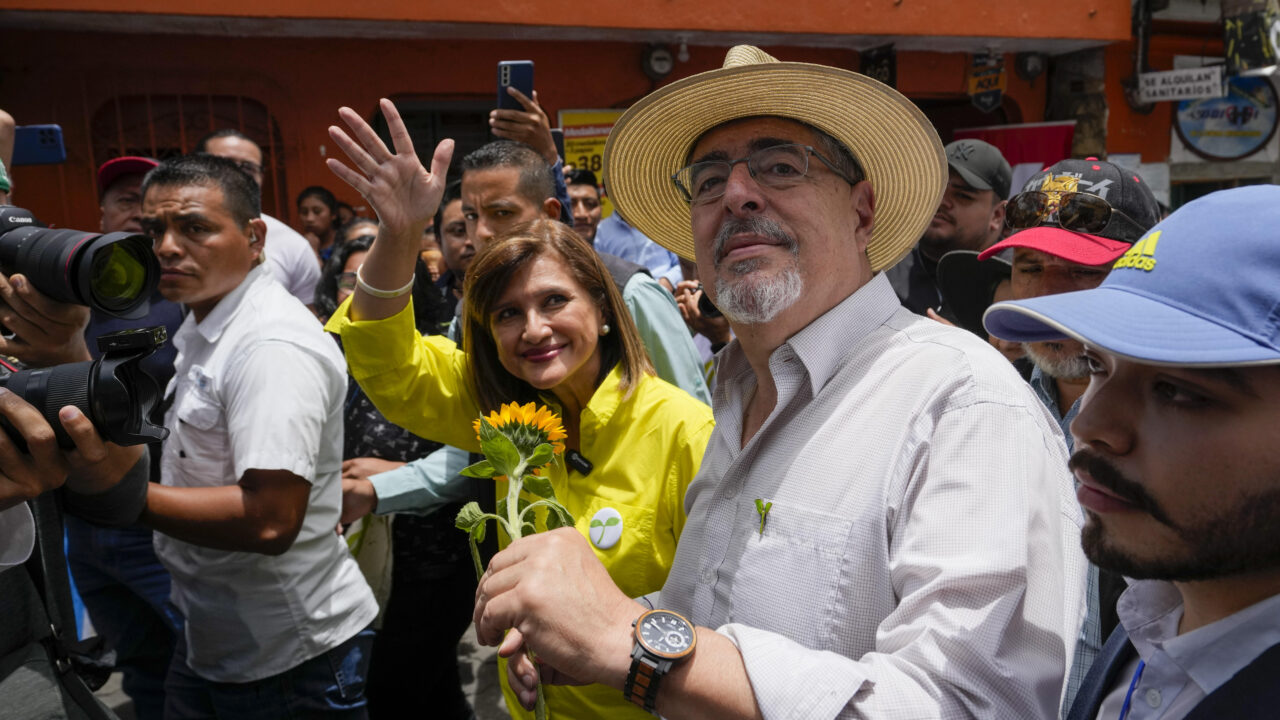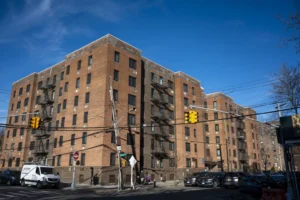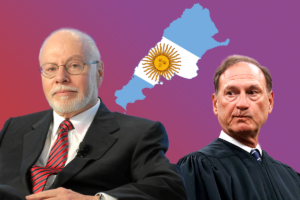Guatemala’s Elections in Disarray as Elites Cling to Power
Bogus allegations of electoral fraud are being leveled at Movimiento Semilla, which stunned the political establishment by finishing as runner-up in the first round of presidential elections. Presidential Candidate Bernardo Arévalo and his running mate Karin Herrera. Photo: Moises Castillo / AP.
Presidential Candidate Bernardo Arévalo and his running mate Karin Herrera. Photo: Moises Castillo / AP.
Guatemalan judicial officials made yet another attempt to derail the presidential elections in favor of the current regime that may no longer be able to rely on the support of its corrupt allies.
On the evening of July 12, Rafael Curruchiche, the head of the country’s Special Prosecutor’s Office Against Impunity (Fiscalía Especial contra la Impunidad – FECI) of the Attorney General’s Office, announced the suspension of Movimiento Semilla. The party’s candidate, Bernardo Arévalo, stunned the political establishment on June 25, finishing as runner-up in the first round of presidential elections. Curruchiche said that FECI was opening a case against Movimiento Semilla for the falsification of signatures during the party’s official registration process.
Moments afterwards, the Supreme Electoral Court (Tribunal Supremo Electoral – TSE), which oversees Guatemala’s elections, defied FECI’s announcement.
The electoral authority said that after a recount ordered by the Constitutional Court, the first round results would stand. Arévalo had indeed finished in second place and would face first-round winner Sandra Torres of the National Unity of Hope (Unidad Nacional de la Esperanza – UNE) in the second-round on August 20, it confirmed.
Days earlier, the court, packed with allies of President Alejandro Giammattei, had taken the unprecedented step of demanding votes be counted again after nine of the traditional political parties, including UNE, complained of electoral fraud.
On the morning of July 13, the Attorney General’s Office raided TSE’s offices. The TSE repeated its stance on the elections first-round outcome and expressed its desire that the democratic process be respected.
The nine parties that complained of fraud after the first round of elections form part of an alliance built around President Alejandro Giammattei.
Protests broke out across Guatemala City, including outside the Attorney General’s Office, where demonstrators chanted that Attorney General Consuelo Porras was a terrorist. Porras and FECI head Curruchiche have both been sanctioned by the United States as part of its Engel list of corrupt actors.
In an unexpected twist several hours later, the Constitutional Court ruled in favor of Movimiento Semilla. The court’s ruling temporarily pauses FECI’s investigation and allows the run-off to take place as planned. The Attorney General’s Office has since published a press release on July 14 promising to continue to investigate Semilla, but saying it would not interfere with the second round date.
At the end of a chaotic 24-hour period and a raft of conflicting constitutional rulings, the country is left reeling and uncertain about what will happen next.
“The courts messing with presidential candidates’ registration processes is not something new,” said Edgar Ortiz Romero, a Guatemalan constitutional law expert and political risk consultant. “But the courts messing with [vote] counting is a very new phenomena and a very worrying one.”
International organizations and governments have expressed their concern about election meddling by corrupt political elites. Among them was the US Department of State, which published a press release stating that it was concerned by the attempt to suspend Movimiento Semilla’s status as a political party.
“The will of the Guatemalan people, as expressed through the June 25 elections results, must be respected,” it said.
The suspension ruling and the Attorney General’s Office actions are unprecedented, representing the latest in what appears to be a last-ditch effort by corruption networks linked to the current regime to reverse a surprise first-round result.
According to Romero, the Attorney General’s ruling against Movimiento Semilla was illegal.
“The only authority that can suspend a party is the Citizen’s Registry [part of the TSE],” he told InSight Crime. “There is no way and no reason for a criminal or civil judge to suspend a party. It is in complete and open contradiction of the constitution and electoral law.”
The nine parties that complained of fraud after the first round of elections form part of an alliance built around President Alejandro Giammattei. These parties, including UNE, Valor, and Cabal, are part of a political dynasty that has its roots in the military, which co-opted state institutions following the end of the country’s civil war (1960 – 1996). The parties and their allies in the judicial sector are collectively known as the Pacto de Corruptos by the local press.
These corrupt networks have so far been successful in keeping outsiders out. In this election, several rivals, including leading candidate Carlos Pineda, were eliminated on dubious grounds by the Constitutional Court and other institutions in which the Pactos’ allies are stacked.
However, as the regime’s attempts to thwart the election results have become increasingly desperate, the Pacto de Corruptos appears to be faltering.
In years past, members of the TSE have been placed into posts by the corrupt networks that form the pact, despite being unqualified. As a result, the TSE has made several questionable rulings in favor of establishment politicians, including Torres. This time, however, it twice came out against FECI and the Constitutional Court.
Yet it seems the visage of the Pacto de Corruptos could be cracking.
Similarly, the court failed to uphold the Attorney General Office’s suspension of Movimiento Semilla, despite several of Giammattei’s most ardent allies occupying positions there. Among them are Leyla Lemus, who previously served Giammattei’s private secretary, and Roberto Molina Barreto, the former running mate of Zury Ríos, another presidential candidate and the daughter of former dictator Efraín Ríos Montt.
Even UNE, which has closely supported Giammattei’s Vamos party in Congress, and which had complained of fraud in the first round despite finishing as leader, has changed tact. In a press statement on July 13, the party said that the June 25 results should stand.
Outside of politics, pillars of the conservative elite are also revising their positions. The country’s most influential business think-tanks, such as the Coordinating Commission of Agricultural, Commercial, Industrial and Financial Associations (Comité Coordinador de Asociaciones Agrícolas, Comerciales, Industriales y Financieras – CACIF) both came out in support of the June 25 results.
The Constitutional Court’s ruling only is only temporary and so the uncertainty plaguing the country’s election process continues for now. Yet it seems the visage of the Pacto de Corruptos could be cracking.
Your support matters…Independent journalism is under threat and overshadowed by heavily funded mainstream media.
You can help level the playing field. Become a member.
Your tax-deductible contribution keeps us digging beneath the headlines to give you thought-provoking, investigative reporting and analysis that unearths what's really happening- without compromise.
Give today to support our courageous, independent journalists.






You need to be a supporter to comment.
There are currently no responses to this article.
Be the first to respond.